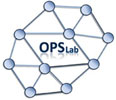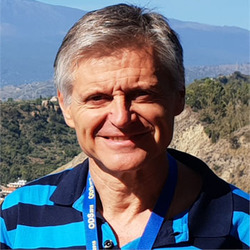PhD School Lecture, 10/02/2021, 09:00 - 10:45
Department of Computer, Control and Management Engineering
University "La Sapienza" of Roma
Lecture
Derivative-free methods for black-box optimization problems
Many real world problems can be modeled as black-box optimization problems. This class of optimization problems is characterized by the fact that the values of the functions describing the problems (objective functions and constraints) are given by a “black box” such as, for example, a complex simulation program or direct measurements. Since any analytical representation of the problem is not available, the first order derivatives (or more in general the first order information) of the objective function and constraints can be neither calculated nor approximated explicitly. This has motivated an increasing interest toward the definition and the study (derivative-free) methods able to tackle such a class of difficult optimization problems by employing only the information deriving from the function values. These methods can be divided into two main classes.
- The “global” derivative free methods which aims to get a global minimum point of the given black box optimization problem.
- The “local” derivative free which produce sequences of points “converging” towards stationary points of the considered minimization problem.
This talk considers a particular subclass of “local” derivative free methods: the linesearch derivative free methods. These methods have the common feature of enforce their convergence properties by using linesearch techniques along suitable search directions.
First the main ideas and results of these methods are recalled. Then linesearch derivative free algorithms for different classes of nonlinear optimization problems are described.
Lecture Lucidi - Derivative-free methods for BB opt
Biosketch
Stefano Lucidi is Full Professor in the University of Rome La Sapienza.
He teaches Operations Research in the first level degrees in Engineering Management and Continuous Optimization in the second level degrees in Engineering Management. His research interests are mainly focused on the study, definition of nonlinear optimization methods and their applications in several different fields such as: machine learning, optimal design, management of healthcare services.
The papers produced by his research can be found in http://scholar.google.it/citations?user=3n2JXcYAAAAJ&hl=it.
He is founding partner of “ACTOR SRL. Analytics, Control Technologies and Operations Research” Spin-Off company of the University of Rome "La Sapienza".
He is member of the Editorial Board of the international journal 4OR-A Quarterly Journal of Operations Research







